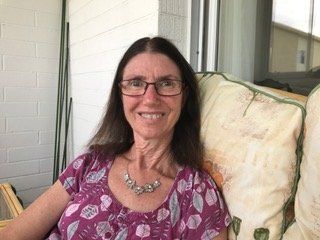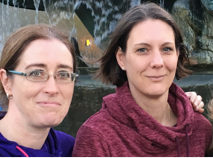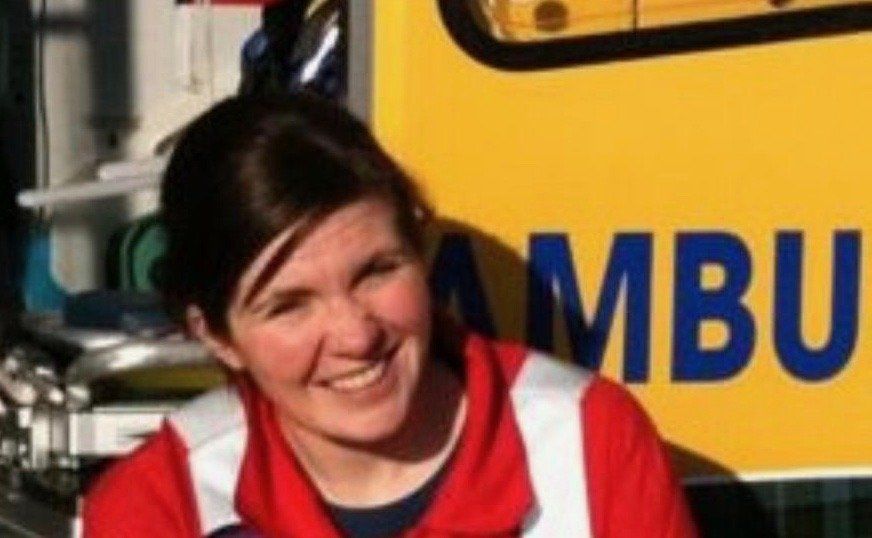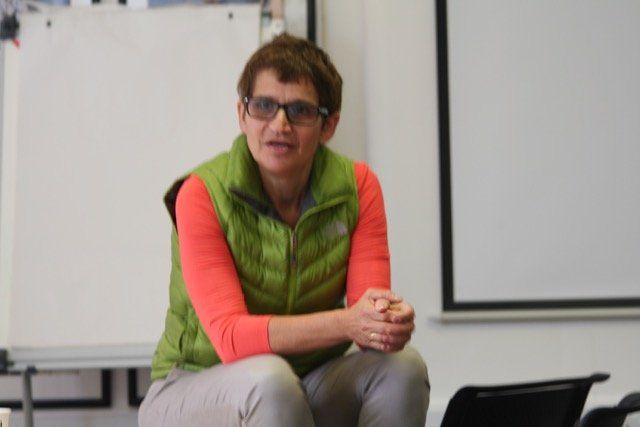Dr Becky Hirst - &me anti stigma campaign
Find out more about our campaign and how you might get involved here
Read on to learn about our volunteer Becky's inspiring story:
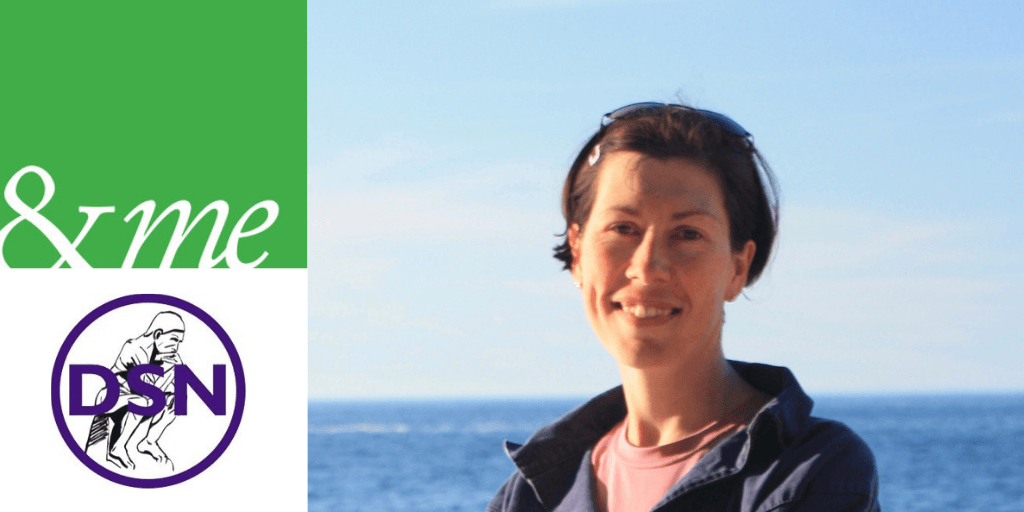
Dr Becky Hirst is a consultant in Palliative Medicine in South Yorkshire. She has had two episodes of moderate to severe depression, the first as a specialty registrar in 2004, both of which required significant time off work.
In 2007 Becky won the BMA writing competition, writing about her first experience of depression, and was also interviewed on Radio 4’s ‘All in the Mind’ in a programme about doctors’ health. Becky feels strongly that, although the statistics are that one in four people will have an episode of mental illness, in fact one in one of us are vulnerable.
Becky won the 2007 BMA writing competition with this piece:
'What I learnt from that episode of depression
I always hoped that I was a ‘good doctor’ when it came to looking after people with mental illnesses. I’d spent six months working in Psychiatry as part of my GP training scheme. Certainly, it wasn’t always easy – my consultant once accused me of treating her patients like horses, making sure they were fed and watered but not much more – but I did my best. In General Practice it was a standing joke that while the other female partners in the practice did the Well Woman Clinic on a Tuesday morning, I did the Weepy Woman Clinic. I spent a lot of time reassuring people that depression was a real illness; that it was a chemical imbalance in the brain; that antidepressants work by correcting that imbalance; that yes, it was hard because if you’d broken your leg then everyone could see the plaster cast…
And then I got sick. I went from being a relatively competent specialist registrar in Palliative Medicine to nothing in a couple of days. I spent the first couple of weeks asleep. I would manage to have a shower and then I would have to go back to bed. I felt like a shell of my former self, and it surprised me sometimes when I looked at my hands that I didn’t just see straight through them. I had lost everything that made me who I was and I despaired of ever being reunited with my sense of humour. Listening to re-runs of radio 4 comedy programmes at 4am, I could appreciate intellectually why things were funny but it didn’t make me smile. Nothing did (my face hurt if I tried). My concentration was non-existent. I could read, but put the book down briefly and I wouldn’t have clue what the story was or even who any of the characters were (“Losing the plot” said the psychiatrist with a twinkle in his eye). I would be paralysed in the supermarket unable to choose food to eat, struggling not to abandon my trolley and leave. I couldn’t trust myself to judge when it was safe to turn right on to a main road in the car. “If I can’t choose which biscuits to buy,” I said to my GP in despair, “I don’t think I’m well enough to be deciding how much diamorphine to put in a syringe driver”. He laughed nervously and wrote me a medical certificate for another month.
I learned so much - about myself, about how depression distorts your reality and your thinking, about how a lot of people perceive people with depression. I learned that when we tell patients blithely that it will be “two or three weeks” before the antidepressants kick in, that every day of that third week is a lifetime. I was amazed at how physical an illness it was – to begin with the smallest exertion left me breathless and shaking. I had pain all over my body. Verging on the psychotic, I would have terrible, graphic visions of seriously hurting myself. These were frightening as they seemed to come from outside me and I worried I might act upon them as I did not feel in control. More frightening was when I got a little less unwell, so that I was functioning better but still felt dreadful, as I couldn’t see the point of continuing in this robot-like state if this was all life had to offer as suicide seemed a rational outcome. With my poor concentration, I wondered if this was like early dementia – within minutes of taking my tablets, I hadn’t a clue whether I had or not and would have to count how many were left in the packet and how many days until the next GP appointment in an effort to work it out; having ‘Can’t Remember What You’ve Gone Upstairs For’ syndrome so badly that I would get from the kitchen to the end of the hall and not know what I was there for.
So two years, a lot of counselling, antidepressants and a chocolate Labrador puppy later and I have regained most of myself, though I’m not who I was before I got ill. Such an illness is like going through a refiner’s fire – one is definitely changed, I hope for the better. Nevertheless, a bit of me grieves for the old ‘me’, whom my current partner has never met. There have been other bereavements – I still struggle with not working full time; I should have become a consultant a couple of months ago but now it will be 2010 at least. They teach you about Kubler-Ross’s six stages of grief at medical school, but nobody tells you that at times you might be doing three or four of them simultaneously, and I’ve never been so angry. It has helped me appreciate what losses my patients might be facing, and also to empathise with those suffering depression. Sometimes I share a bit of my own experience if I think it might help.
One of the most difficult lessons was learning to be kind to myself, that if I didn’t look after myself there was no way I could care for others. It’s easy to get swamped by the needs of others – patients, team members, family – and to feel guilty if we take time for ourselves. When I was first ill, my psychiatrist friend advised me to do one chore and one nice thing each day. I vividly remember how proud I was the day I washed the kitchen floor for the first time for a year. Depression is a horrible illness. I wouldn’t wish the experience on anyone, but I could not have gained such insights into the world and myself without it. Depression leaves a stain on your soul, even when you fully recover, but that scar serves to remind me of the journey I’ve made and be grateful.'
Find out more about our &me campaign here
Seeking help?
Our wonderful &Me ambassadors share their inspiring stories to provide general encouragement and to help breakdown stigma, but if you need support, please seek it from your healthcare provider or a specialist service, rather than contacting our ambassadors in person.
See our 'Support for Doctors'
page for listings of various services and organisations specialising in supporting medics with mental ill health.






